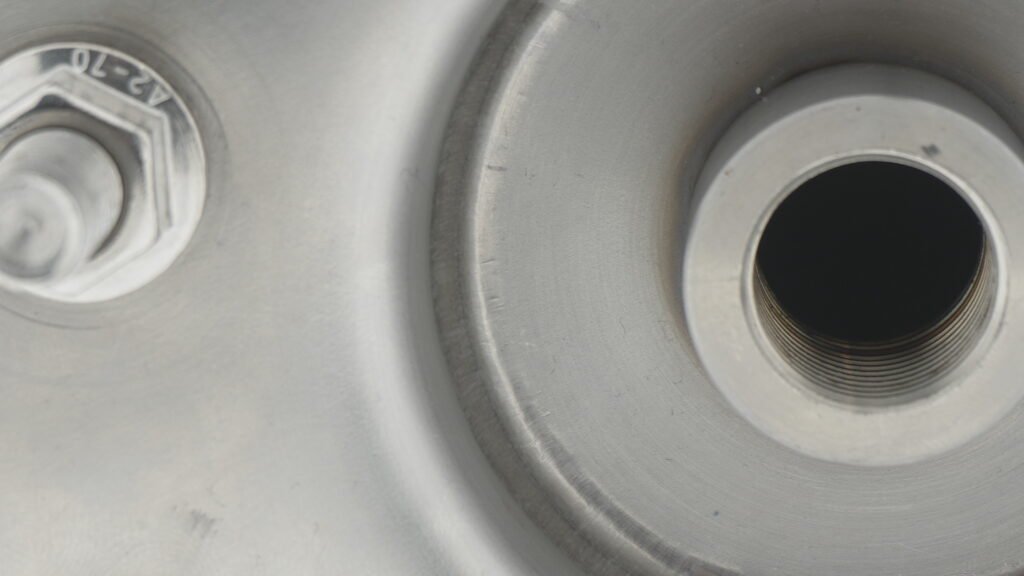
Enhancing Load Stability and Shock Absorption
Cargo transportation faces numerous challenges, including load instability, road vibrations, and mechanical wear. Air bellows play a critical role in mitigating these issues by providing superior vibration isolation, load stabilization, and shock absorption. Unlike traditional suspension systems, air bellows dynamically adjust to changing load conditions, ensuring optimal performance regardless of cargo weight or terrain type. The integration of air bellows in truck and trailer suspension systems leads to significantly reduced mechanical stress on cargo and vehicle components. By absorbing road irregularities and maintaining a consistent ride height, air bellows protect delicate freight, minimizing the risk of damage during transport. This contributes to lower maintenance costs, extended vehicle lifespan, and improved operational efficiency. The typical operating pressure ranges from 6 to 8 bar, with some high-strength models reaching up to 12 bar. Load capacities vary from 0.5 kN to 450 kN, depending on the model and configuration. These specifications ensure optimal shock absorption and vibration reduction in various transport applications.
Fuel Efficiency and Load Distribution
An often-overlooked benefit of air bellows in cargo transportation is their contribution to fuel efficiency. By maintaining an optimal ride height and even load distribution, air bellows minimize aerodynamic drag and rolling resistance. This results in lower fuel consumption and reduced CO2 emissions, aligning with sustainability goals in the logistics industry. Additionally, air bellows assist in reducing axle overloading, which is a major concern for freight operators. Uneven load distribution leads to premature tire wear and higher fuel consumption. With adjustable air pressure control, air bellows ensure that cargo remains evenly distributed, thereby extending tire lifespan and improving overall fleet efficiency. Standard air bellows diameters range from 80 mm to 950 mm, ensuring compatibility with a wide range of vehicles. Their natural frequency at 6 bar pressure varies between 1.4 Hz and 4.6 Hz, offering exceptional ride comfort and fuel savings.
Increased Durability and Maintenance Reduction
Conventional metal springs are prone to fatigue and wear, leading to frequent replacements and high maintenance costs. In contrast, air bellows are engineered for longevity. Constructed from high-performance elastomers, reinforced with fabric layers and metal components, air bellows withstand extreme operating conditions, including temperature fluctuations, corrosive environments, and heavy-duty loads. Unlike traditional suspension systems, which require regular lubrication and part replacements, air bellows are maintenance-free. Their self-adjusting properties eliminate the need for frequent manual adjustments, reducing downtime and increasing vehicle availability for transport operations. The maximum stroke of air bellows varies from 60 mm to 400 mm, depending on size and construction. The temperature resistance ranges from -40°C to +115°C, allowing them to perform in harsh environments. These features contribute to lower total cost of ownership for fleet operators.
Customization and Versatility in Logistics Applications
One of the standout features of air bellows is their versatility. They are widely used in trucks, trailers, buses, railcars, and industrial machinery, offering customizable solutions to meet varied operational requirements. Different configurations, such as single, double, and triple convolution designs, allow for tailored load handling based on specific transport needs. Additionally, air bellows come in various mounting styles, including bead ring, crimped, and dismountable designs, making them compatible with a wide range of vehicle types. This flexibility in integration makes air bellows an ideal choice for logistics companies looking to optimize cargo transportation systems. The maximum axial force that air bellows can handle is up to 450 kN, ensuring reliable performance under heavy loads. The materials used include NR/SBR rubber, EPDM, NBR, and CIIR, offering resistance to weather, chemicals, and mechanical stress.
Safety Enhancements and Regulatory Compliance
Air bellows contribute significantly to transportation safety by maintaining vehicle stability under varying load conditions. Their ability to absorb shocks and eliminate excessive vibrations reduces the likelihood of cargo shifting, preventing accidents and cargo damage. Moreover, air bellows help transport companies comply with weight regulations and road safety standards. Properly adjusted air bellows ensure that vehicles meet legal axle load limits, reducing the risk of fines and legal issues. The minimum installation height starts from 50 mm, making them suitable for compact applications. The maximum design height reaches 350 mm, providing excellent stability. The air inlet types include G1/4″, G3/8″, and G3/4″, allowing for easy integration into existing systems.
Cost Savings and Return on Investment
Investing in air bellows results in substantial long-term cost savings. The key financial benefits include:
- Reduced fuel consumption due to improved aerodynamics and load distribution.
- Lower maintenance costs compared to conventional suspension systems.
- Extended vehicle lifespan, reducing capital expenditure on fleet replacements.
- Minimized cargo damage, leading to fewer insurance claims and better customer satisfaction.
These advantages make air bellows a cost-effective solution for fleet operators, offering a high return on investment over time. Their lifespan typically exceeds 1,000,000 cycles, ensuring long-term reliability.
Incorporating air bellows in cargo transportation systems provides unparalleled benefits, from enhanced load stability and fuel efficiency to reduced maintenance costs and extended vehicle lifespan. Their versatility, customizability, and safety improvements make them an indispensable component in modern freight logistics. As the industry continues to prioritize sustainability, cost reduction, and safety, air bellows stand out as a superior solution for optimizing cargo transportation efficiency.
